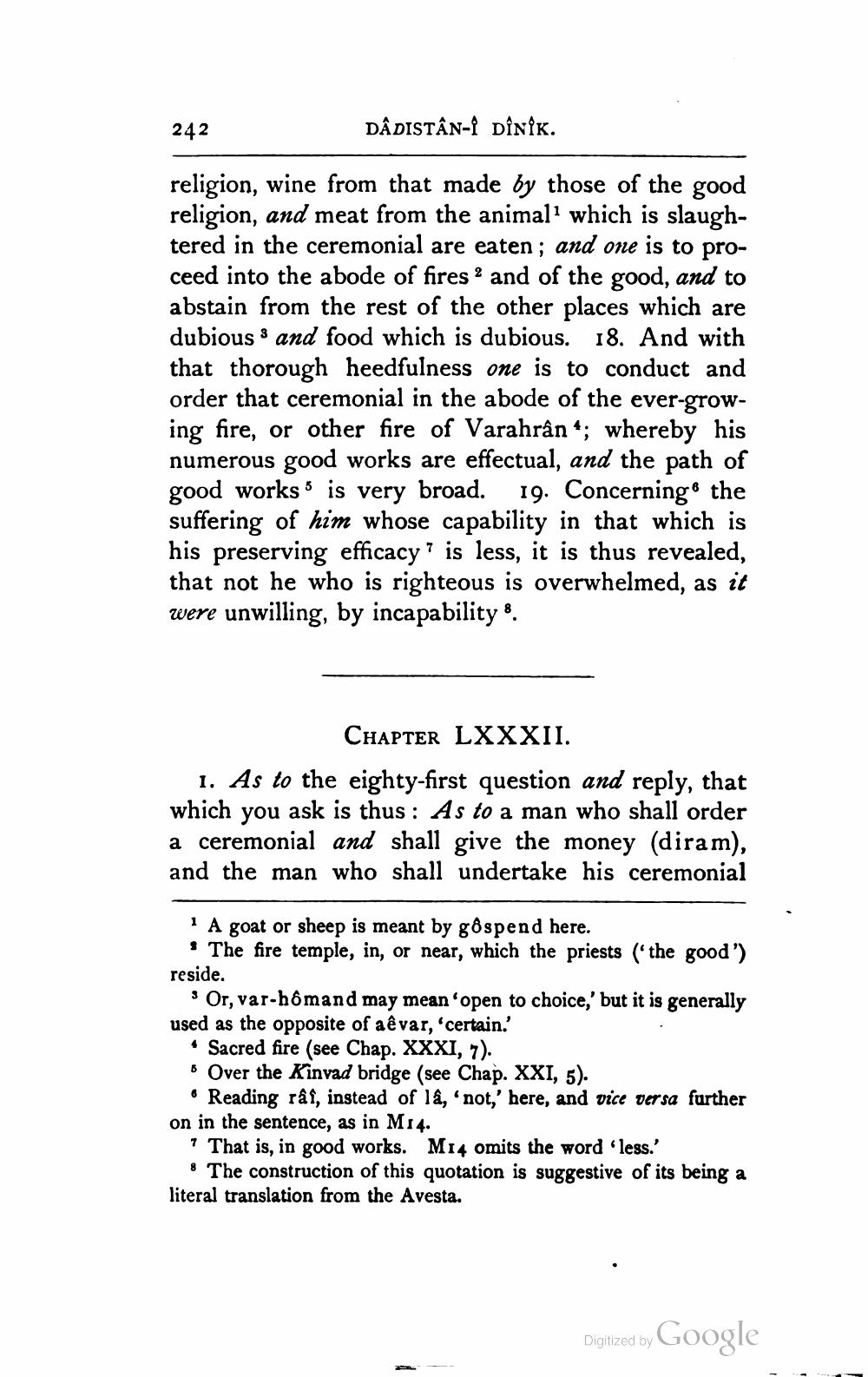________________
242
DÂDISTÂN-Î DÎNÍK.
religion, wine from that made by those of the good religion, and meat from the animal' which is slaughtered in the ceremonial are eaten; and one is to proceed into the abode of fires 2 and of the good, and to abstain from the rest of the other places which are dubious : and food which is dubious. 18. And with that thorough heedfulness one is to conduct and order that ceremonial in the abode of the ever-growing fire, or other fire of Varahrân *; whereby his numerous good works are effectual, and the path of good works 5 is very broad. 19. Concerning the suffering of him whose capability in that which is his preserving efficacy? is less, it is thus revealed, that not he who is righteous is overwhelmed, as it were unwilling, by incapability 8.
Chapter LXXXII. 1. As to the eighty-first question and reply, that which you ask is thus : As to a man who shall order a ceremonial and shall give the money (diram), and the man who shall undertake his ceremonial
1 A goat or sheep is meant by gôspend here.
* The fire temple, in, or near, which the priests (the good') reside.
. Or, var-hômand may mean open to choice,' but it is generally used as the opposite of aêvar, certain.' • Sacred fire (see Chap. XXXI, 7).
Over the Kinvad bridge (see Chap. XXI, 5). • Reading râs, instead of la, 'not,' here, and vice versa further on in the sentence, as in M14.
7 That is, in good works. M14 omits the word 'less.
& The construction of this quotation is suggestive of its being a literal translation from the Avesta.
Digitized by Google




